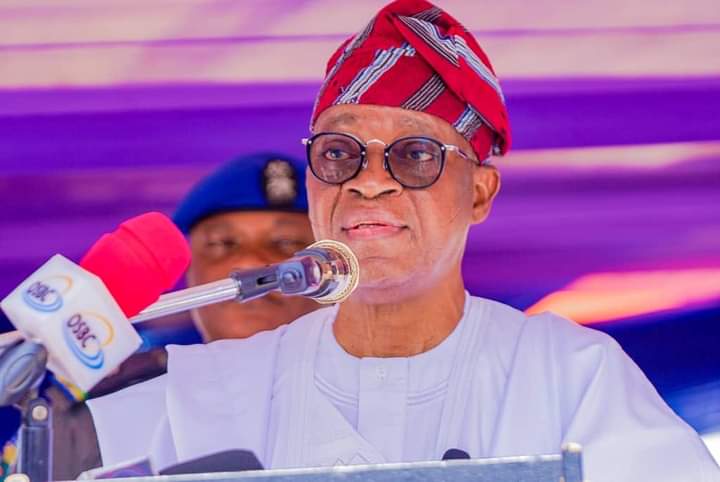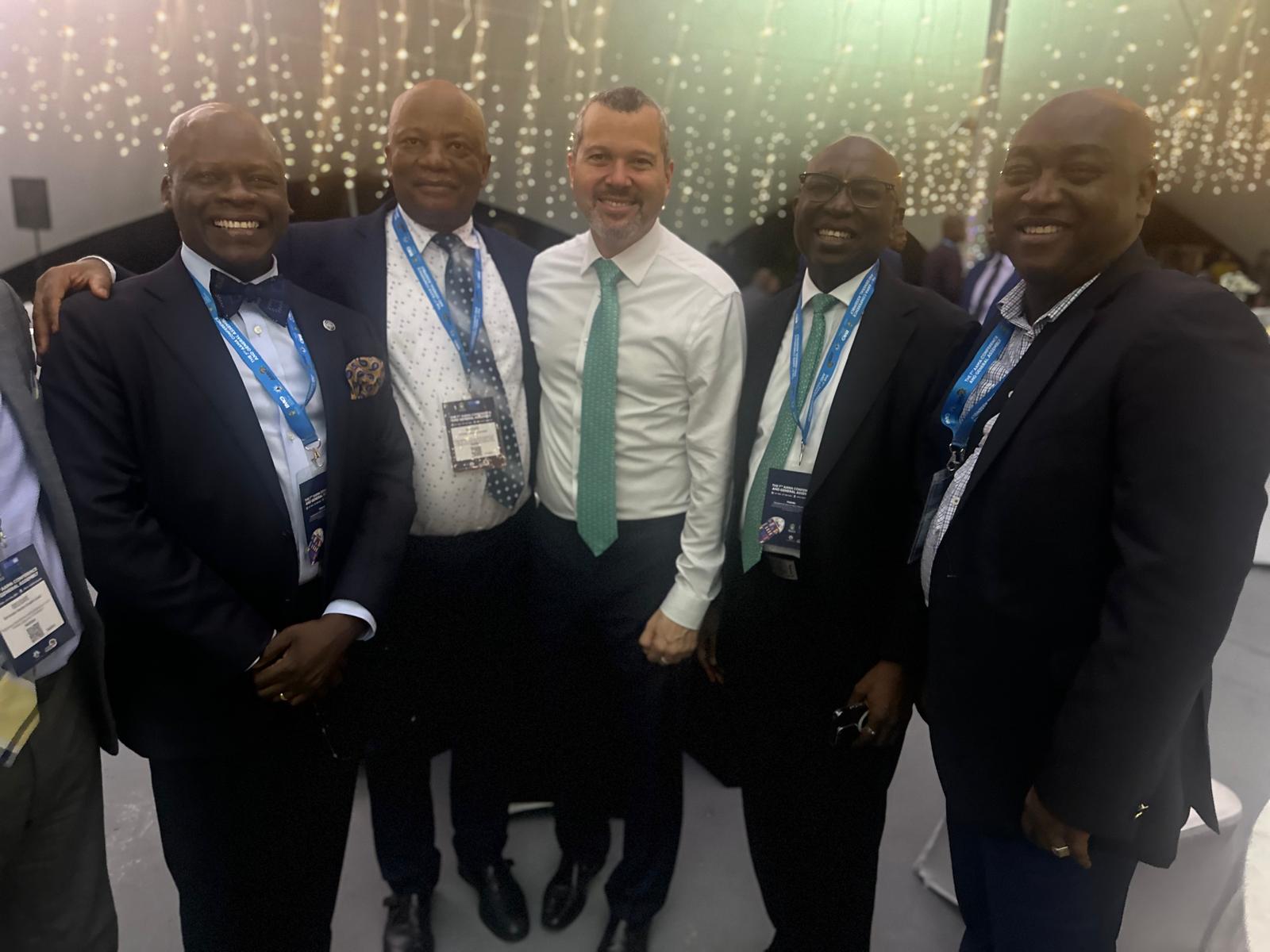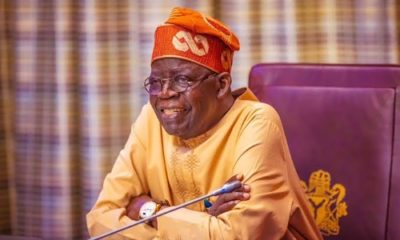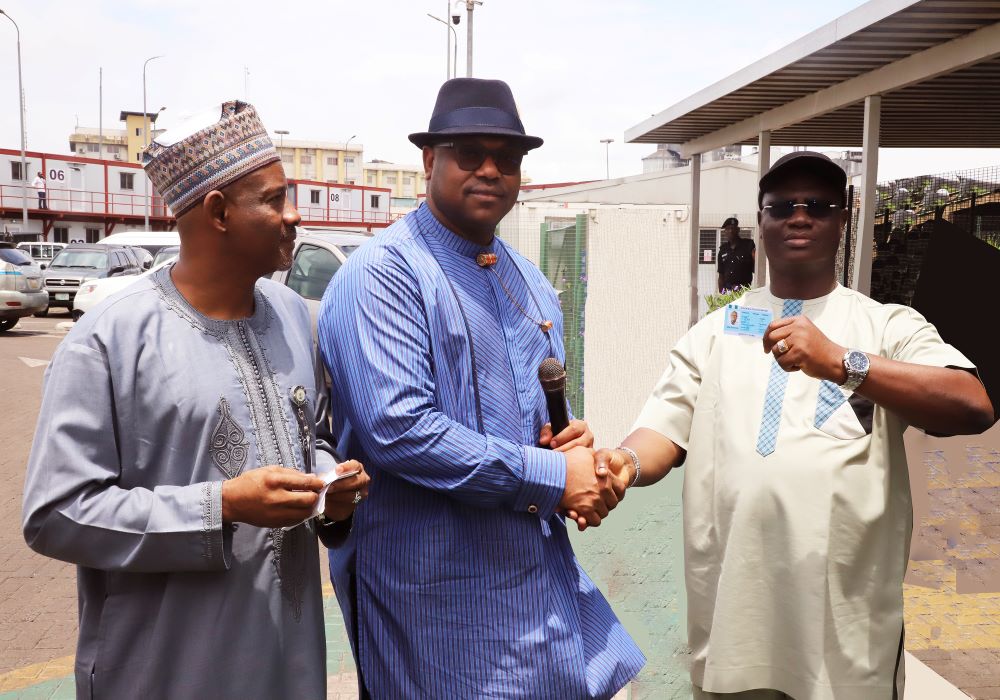Maritime
No plans to sack dockworkers – NPA
By Kunle KALEJAYE
LAGOS-The Management of Nigerian Ports Authority (NPA) has said that there are no plans by the organisation to sack 10,000 dockworkers.
Responding to an advertorial published on Monday by a group which called itself “Concerned Dockworkers” of the Mari1ime Workers Union of Nigeria (MWUN) of Delta State titled ‘OPEN LETTER/PETITION AGAINST ALHAJI HABIBU ABDULLAHI, MANAGING DIRECTOR NIGERIAN PORTS AUTHORITY (NPA) ON HIS MOVE TO SACK OVER TEN THOUSAND NIGERIAN DOCKWORKERS (TALLY CLERKS AND CARGO SECURITY MEN) OPERATING IN NIGERIAN PORTS, MIDSTREAM, JETTIES AND TERMINALS’, NPA said the group dished out misleading information to the public.
“In the letter, which was full of half-truths and innuendos, the writers alleged amongst other things that the NPA Management has “threatened to sack 10,000 tally clerks and security” category of dockworkers”, to replace them, with less than 80 persons as cargo surveyors.
“Ordinarily, the Management would not have reacted to this purported letters by the uninformed writers but considering the flagrant misinformation and the misinterpretation of trust in the letter, calculated to paint the management and particularly the Managing Director in bad light, we deem it most appropriate to put the record straight for the benefit of the general public especially stakeholders,” NPA stated.
The NPA Management said it had never been the employer of dockworkers as prior to the 2005 port reform, the Authority ran a full service port system and was directly involved in cargo receipt from the vessel, its discharge and subsequent delivery to the consignee.
“Under the current concession regime, cargo operations became the responsibility of the terminal operators who are the master stevedores for their individual terminals, with authority to hire and fire dock labour employer for supply of dockworkers to their terminal and to pay them accordingly.
“With the port reform and following agitation by the Dockworkers Union, Government approved a severance package of N200,000 for each of the severed dockworkers not required by the new terminal operators on account of age or low productivity was paid by the Authority, while NIMASA ultimately took over the responsibility for the registration, welfare, training and regulation of dock labour practice in country.
“Cargo surveyors have for long been representatives of the NPA in port operations. As professionals responsible for measuring the tonnage particularly of dry liquid bulk cargoes, they were first engaged in 1999 and renewed in 2006 at the take-off of the current concession.
“Cargo surveyors are to provide the Authority with an independent source of information for the verification of tonnage discharged by vessels calling at the ports for voyage reconciliation with terminal operators.
“Last December, the NPA in its desire to check fraudulent practices in the payment to labour contractors initiated a verification exercise for all such contractors with a view to authenticate all genuine and ambiguous claims from such contractors.
“It should be pointed out here that in the last nine years, the Authority had been groaning under the weight of the financial burden of payment of tally clerks/on board security men even when it does not deliver any value to NPA under the current dispensation as a landlord and regulator,” the Port Authority explained even as it stated that the overriding desire for a peaceful industrial relations atmosphere that will ensure and secure government’s objectives for reform in the maritime sector and improve efficiency of port services shall always remain the its guiding the approach.
“The contractual relationship entered into by Nigerian Ports Authority as a responsible corporate organization is guided by established Government regulations.
“The publication in This Day of Monday 22nd December 2014, captioned “Call To Regularize Contractual Obligations”, which the group finds offensive in summary requires all employers of tally clerks and onboard security men with existing and going contractual relationship with the Authority to come forward for verification as a basis for ensuring payment.
“Are they saying their contracts should not be verified while the Authority continues to pay billions under questionable circumstances?
“The on-going verification exercise of labour contractors by Management is meant to ensure that the Authority only pays to contractors with the valid contracts and to curb fraudulent practices in the process.
“As a responsible organization, NPA Management wishes to re-affirm that no fully registered labour contractor would be surcharged in this exercise,” the organisation added.
Maritime
Maritime Stakeholders Back Bill For Nigeria Coast Guard At Public Hearing

Stakeholders and experts in Nigeria’s maritime sector have expressed support for the Coast Guard Bill before the National Assembly, with many describing the proposed legislation as a boost to the federal government’s efforts in securing the maritime space.
At a public hearing convened by the Senate Committee on Marine Transport to discuss the bill for the establishment of the Nigeria Coast Guard (NCG), stakeholders presented varying views, with the majority supporting the creation of the NCG.
The majority of presentations voiced strong support for the establishment of the Coast Guard, with notable endorsements from prominent figures including Dr. Olisa Agbakoba, SAN; Dr. Ade Dosunmu, MON, former Director General of NIMASA; Mrs. Jean Anishere, SAN, representing the Nigeria Bar Association; and Rear Admiral Ekwerre U. Ekwerre (Rtd), former Flag Officer Commanding the Training Command of the Nigerian Navy.
ALSO READ: Like America, Like Ghana: Opposition Defeats Ruling Party In Presidential Election
Dr. Olisa Agbakoba described the bill as timely but emphasized the need for professional input to address certain concerns within the draft. He expressed his willingness to assist in this process. Dr. Ade Dosunmu offered full support for the bill, suggesting that the Nigerian Navy should focus on blue-water operations and national defense against external threats, while the Coast Guard should address maritime crimes and incidents along Nigeria’s extensive 855-kilometer coastline using more adaptable resources. He referenced successful maritime nations such as India, Singapore, China, the United States, Japan, Egypt, Morocco, and the United Arab Emirates, all of which have well-defined roles for both the Navy and Coast Guard.
However, Dr. Dosunmu cautioned against assigning functions such as hydrography and oceanographic research to the Coast Guard, as these responsibilities are already managed by other agencies, and incorporating them could divert focus from the Coast Guard’s primary mission.
Jean Anishere, SAN, articulated her support for the bill while highlighting certain ambiguities that must be resolved before it can be enacted. She pointed out specific provisions in the bill that require clarification and further refinement.
Retired Rear Admiral Ekwerre U. Ekwerre addressed concerns raised by the Nigerian Navy and advocated that the Navy should concentrate on defense, showcasing military strength, and conducting diplomatic operations within territorial waters and the Exclusive Economic Zone (EEZ). He asserted that the Coast Guard should be responsible for enforcing maritime laws in the nation’s inland waters.
In summary, while the majority of stakeholders endorsed the establishment of the Nigeria Coast Guard, they also called for careful consideration of the bill’s provisions to ensure clarity and effectiveness in its implementation.
Maritime
How Innovative Financing Would Aid Africa’s Maritime Sector – NIMASA DG

Innovative financing models have been identified as the vital catalyst for achieving sustainable development in the African Maritime industry.
The Director General of the Nigerian Maritime Administration and Safety Agency (NIMASA), Dr. Dayo Mobereola, made the declaration at the 7th Association of African Maritime Administrations (AAMA) conference in Dar es Salaam, Tanzania.
He assured attendees of Nigeria’s commitment to advancing a future where Africa’s maritime sector thrives sustainably.
In his words, “Nigeria is committed to collaborating on technology and innovation to enhance safety, security, decarbonization, and the marine environment for a sustainable future.”
According to him, the conference presents a pivotal opportunity to address our shared challenges, particularly those related to sustainable energy, regional security, and economic growth.
ALSO READ: Tinubu, Ramphosa Co-Chair Bi-National Commission’s 11th Session
“We are here to advocate for innovative financing models and international support that will facilitate sustainable growth. As Nigeria pursues infrastructure development and digital transformation within our maritime sector, we call on our regional and international partners to support these efforts through technical and financial backing.
“Our priorities at the AAMA conference include exploring collaborative avenues to enhance maritime safety and security. By reinforcing our adherence to frameworks like the Djibouti and Yaoundé Codes of Conduct, we aim to solidify Nigeria’s role in combating piracy and maritime crime across West Africa,” he stated.
The AAMA was established to lay a firm foundation for regular consultations, enabling African maritime administrations to build joint positions on issues of common concern in the maritime sector.
When Nigeria hosted the 3rd AAMA conference in 2017, a master plan was developed outlining the measures necessary to advance the maritime agenda as envisioned in the African Maritime Transport Charter. The Association has also created a platform to strengthen cooperation at the regional, continental, and international levels, harmonizing policies and goals essential for the growth of the African maritime sector.
Maritime
Oyetola Counts On Nat’l Marine and Blue Economy Policy To Chart New Course For Dev’t

The Honourable Minister of Marine and Blue Economy, Adegboyega Oyetola is of the view that a National Policy on Marine and Blue Economy is essential for the development of the Nigerian maritime sector.
Biztellers reports that Oyetola shared the view, on Tuesday, while declaring open a stakeholders’ validation session aimed at developing the National Policy on Marine and Blue Economy in Nigeria, in Lagos.
The former Osun State Governor emphasized that the National Policy will create a sustainable pathway for economic growth in fisheries, aquaculture, renewable energy, tourism, and seabed mining, while also ensuring environmental sustainability.
He further noted the need for a robust National Policy to address challenges in the sector, including environmental degradation and illegal activities such as Illegal, Unreported, and Unregulated (IUU) fishing.
ALSO READ: Obi Congratulates NNPC Ltd On Port Harcourt Refinery
In his words, “A robust National Policy will ensure that we address these issues through a comprehensive framework that aligns with international best practices while safeguarding our marine resources for future generations.
“It is worth noting that Nigeria has achieved notable progress in maritime governance, including the ratification and domestication of international protocols and conventions. These measures have strengthened our safety and security framework, resulting in a remarkable three-year period with zero incidents of piracy in our waters. Nonetheless, the recurring boat mishaps underscore the pressing need for immediate action.
“This policy seeks to implement comprehensive strategies to ensure the safety of all waterways. However, challenges such as the recent spate of boat mishaps demand urgent attention. Consequently, this policy aims to establish comprehensive measures that will enhance safety across our waterways.
“As we develop this policy, the Ministry remains committed to repositioning Nigeria as a dominant player in the marine and blue economy, both regionally and globally. We are also pursuing Nigeria’s candidacy for election to Category C of the International Maritime Organization (IMO), which underscores our determination to strengthen our voice in global maritime governance”.
In his welcome address, the Permanent Secretary of the Ministry, Olufemi Oloruntola, noted that the validation workshop is a key step in shaping the National Policy on Marine and Blue Economy — a framework designed to address Nigeria’s specific needs and aspirations while embracing sustainable development principles. “It provides an opportunity for stakeholders to review, refine, and enrich the draft policy through a participatory and inclusive approach,” he said.
The draft policy, which consists of nine parts, offers an elaborate overview of our country’s marine and blue economic endowments and their current state. It affirms our mandate, vision, and mission, setting the stage for the policy’s objectives and aspirations. It further dissects these aspirations into five broad parts of legal and institutional framework; maritime transport, trade and shipping; fisheries and aquaculture; marine abiotic resources; and marine innovation and technology. It also identifies a range of cross-cutting issues and concludes with an assessment of stakeholders to support the implementation structure. Overall, it is a comprehensive document.
Also present at the event were the Chief Executive Officers of all the agencies under the Ministry, including Dr. Dayo Mobereola, Director General, Nigerian Maritime Administration and Safety Agency; Abubakar Dantsoho, Managing Director, Nigerian Ports Authority; Barrister Akutah Pius, Executive Secretary, Nigerian Shippers Council; and Bola Oyebamiji, Managing Director, National Inland Waterways Authority.
Other attendees included Funmi Folorunsho, President, African Shipowners Association; Engr. Greg Ogbeifun, Managing Director, Starz Marine; and the President, National Association of Stevedoring Companies, among other stakeholders.





















